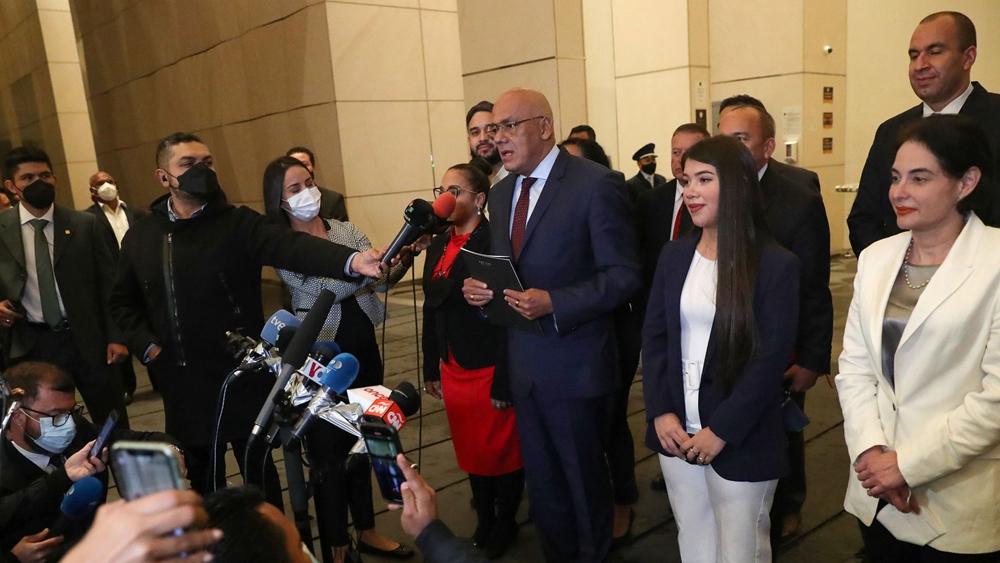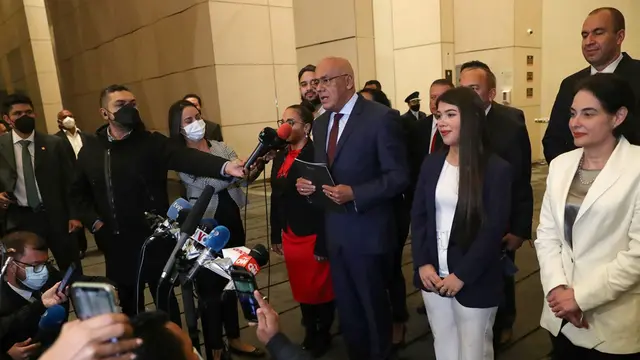
Jorge Rodriguez, president of Venezuela's National Assembly and head of the government delegation, speaks to the media after talks with opposition representatives in Mexico City, Mexico, September 6, 2021. /Reuters
Venezuelan government and opposition representatives on Monday said they had reached partial agreement during talks in Mexico City as part of a roadmap drawn up to tackle the Latin American country's long-running crisis.
In a joint statement following negotiations from Friday to Monday, they said areas of agreement related to social measures, particularly on those affected by COVID-19, and a territorial dispute concerning neighboring Guyana.
Representatives from the two sides said that talks on economic and social measures, including special drawing rights with the International Monetary Fund (IMF), would continue in the next round.
"Progress was made in consultation mechanisms with political and social actors, making them as inclusive as possible," the statement said.
The two sides had already met in the Mexican capital last month for intense talks.
"We have a long way to go, we have a lot of work to do, we have many issues to discuss, but today we have shown ... that we can say the hardest things to ourselves," said Jorge Rodriguez, president of Venezuela's National Assembly and head of the government delegation.
Rodriguez said that after the "early agreements" reached in the round, representatives from both sides will return to the table in Mexico at the end of the month.
Venezuelan President Nicolas Maduro in July agreed to enter into political dialogue in Mexico with the opposition on three conditions, including that all the participating political sectors renounce violent plans, all U.S.-led sanctions against Venezuela cease immediately, and the radical right-wing opposition recognize the authority of all Venezuelan state institutions.
The opposition has called for humanitarian aid, including vaccines against COVID-19, to be let into the country, the freeing of supporters it considers political prisoners and guaranteed regional elections in November.
Venezuela was thrust into a
deep power struggle
in January 2019 when Juan Guaido, the leader of the National Assembly that was controlled by the opposition at the time, proclaimed himself "interim president" of Venezuela, arguing Maduro's 2018 re-election was illegitimate. The United States, which supported Guaido, expanded sanctions on Venezuela
.
(With input from Reuters)
 简体中文
简体中文

